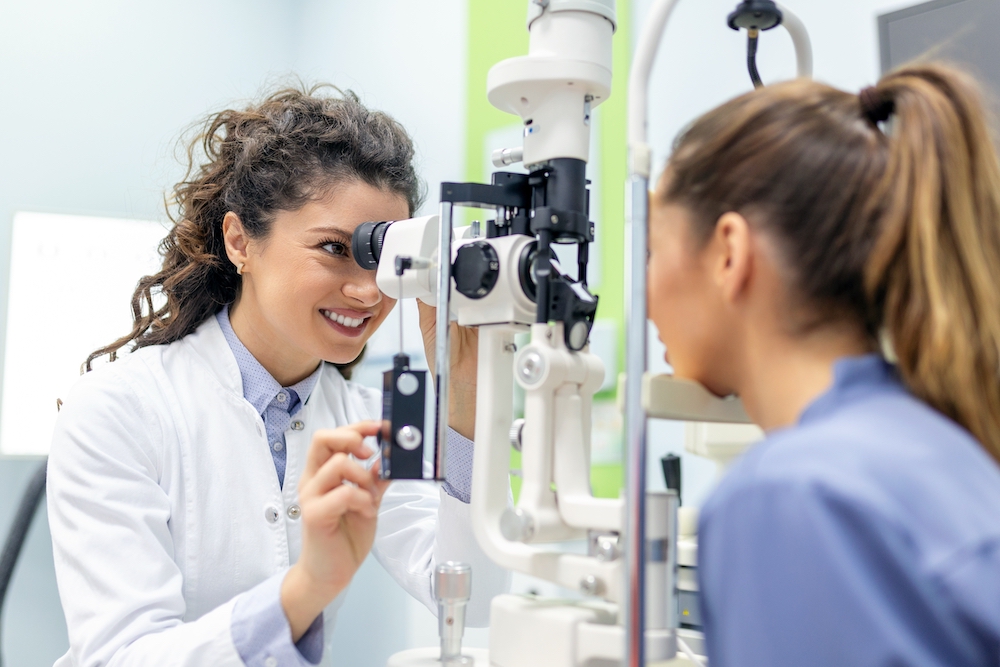
If you have diabetes, annual comprehensive eye examinations will help protect your eyes from sight-threatening conditions. Diabetes prevents the body from storing and using sugar properly. This can lead to high blood sugar that can damage blood vessels throughout the body if left uncontrolled, including those in your eyes.
Standard vs. Diabetic Eye Exams
Diabetic eye exams are similar to standard eye exams in many ways. However, eye doctors specifically focus on the retina’s health and the integrity of the blood vessels in the eye during a diabetic exam. If you live with diabetes, you should understand the differences between these two types of eye checkups.
Standard Comprehensive Eye Exam
Regular comprehensive eye exams help ensure good vision and eye health. Comprehensive eye exams are critical to caring for your eyes and overall health. Many eye conditions have no obvious symptoms in their initial stages. So, you may not know that an eye or vision problem exists.
Early diagnosis and treatment of ocular problems can help prevent vision loss or blindness. Your symptoms and your eye doctor’s professional judgment will help determine the tests you will undergo during a comprehensive eye exam. It may include the following:
Patient history
Visual acuity
Preliminary tests to evaluate color vision, peripheral vision, depth perception, eye muscle movement, and pupil response to light
Topography or keratometry
Refraction
Eye movement, teaming, and focusing
Eye health evaluation
Supplemental testing to provide a more detailed assessment
Your eye doctor will discuss your results after your exam and recommend appropriate interventions if you have a vision or eye problem.
Diabetic Eye Exam
Diabetic Retinopathy
This eye condition affects about 30 percent of individuals with diabetes. It occurs when the tiny blood vessels in the eye start leaking blood and fluid into the retina, leading to damage and permanent vision loss. Early diagnosis and treatment are critical to preserving eyesight.
Diabetic Macular Edema
Diabetic retinopathy can lead to a complication known as diabetic macular edema. This condition occurs when the macula begins to swell. That causes damage to the blood vessels in the eye, causing them to leak into the retina, resulting in vision loss.
A diabetic eye exam focuses more on eye health. Your eye doctor will ask questions centered around your overall health, including the following:
The symptoms you are experiencing
When you started experiencing them
How well you control your blood sugar
Any health problems you are experiencing
Your eye doctor will perform Optomap Retinal Imaging or administer dilating eye drops to enlarge your pupils. That will help make the back of your eye more visible. The doctor will observe your retina, retinal blood vessels, and optic nerve.
During a diabetic eye exam, eye doctors thoroughly check for signs of disease using various diagnostic tools. The American Diabetes Association recommends yearly diabetic eye exams to ensure your eyes and vision are healthy.
These exams are essential even if you are not experiencing any symptoms. The average comprehensive eye exam happens every two to four years for adults with no known medical condition or eye problem.
For more diabetic eye care information, contact the Houston Dry Eye clinic at our Houston, Texas, office. Call (713) 664-4760 to schedule an appointment today.




